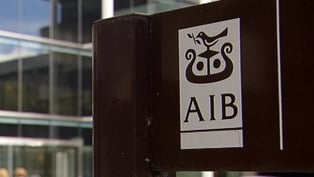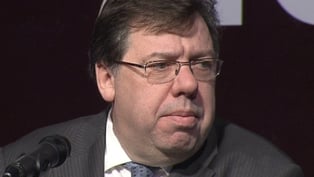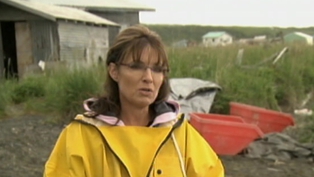
AIB has said the amount of money on deposit at the bank has fallen by €13 billion since the start of the year. The figure came in a trading update issued by the bank this afternoon.
The bank said the reduction was mainly due to an outflow of money from companies and financial institutions. Most of the outflow occurred in the third quarter of the year.
AIB said funding conditions for the bank in recent months had been increasingly tough, and as a result it had received a range of funding from central banks.
The bank said talks going on at the moment between the Government, EU, IMF and others were likely to affect the banking sector.
It said profits in all of its businesses - excluding loan losses - were lower compared with last year, with income affected by lower business volumes and the higher costs of the Government guarantee scheme.
AIB said the percentage of its mortgage customers in arrears continued to rise in the three months to the end of September, though not as quickly as in the second quarter. 2.6% of its owner-occupier mortgages are in arrears for more than 90 days compared with 2.1% at the end of June. It said future changes in these figures would be strongly influenced by the rate of unemployment.
The bank said the number of loans in danger of not being re-paid, known as 'criticised' loans, increased again in the third quarter of this year, especially in Ireland, as the property market remained weak. It did not give detailed figures, however. One factor in the increase is €4.4 billion of loans which will not now be transferred to the National Asset Management Agency. The Central Bank has estimated that losses on these will be 56%.
AIB also plans to raise more money to meet the €10.4 billion target set by the Central Bank as a result of its decision to halt the planned sale of its UK business. The bank now aims to raise €6.6 billion, rather than the previous €5.4 billion. This will be underwritten by the National Pensions Reserve Fund Commission, meaning the State is likely to have to take an even bigger stake than previously thought.
The bank said staff numbers at the bank had fallen by 600 over the last 12 months.
Shares in the bank closed up 4.6% at 44 cent in Dubli
n






